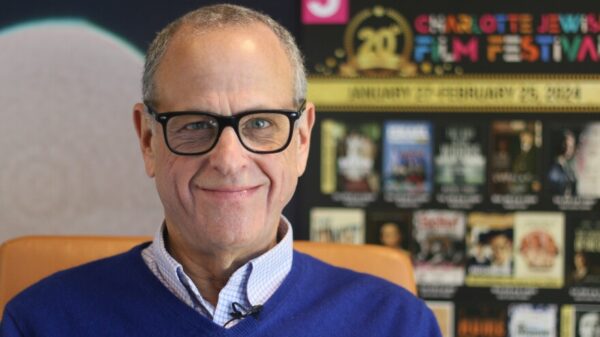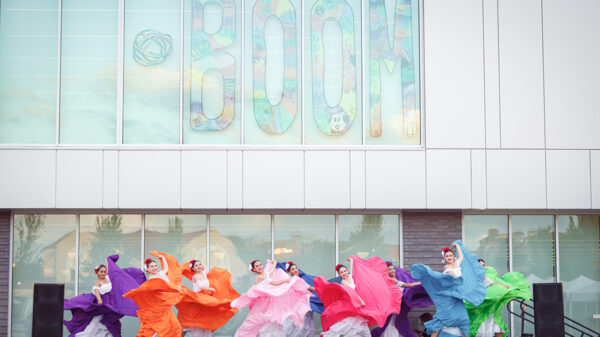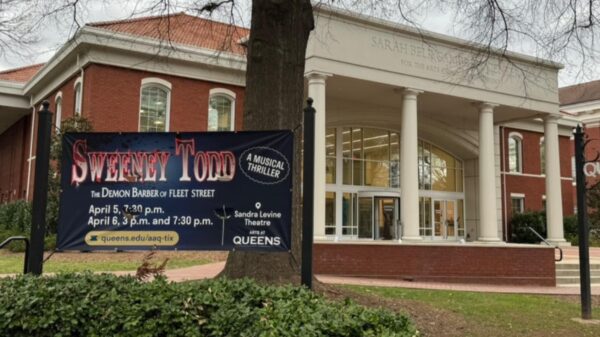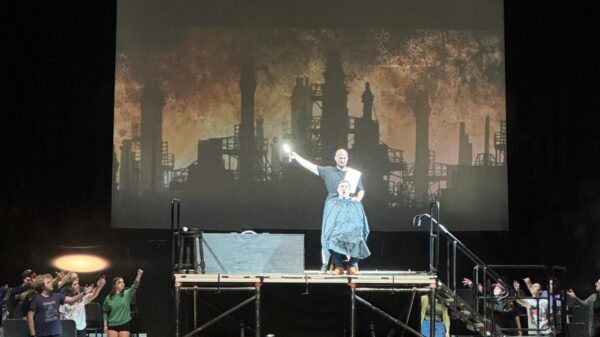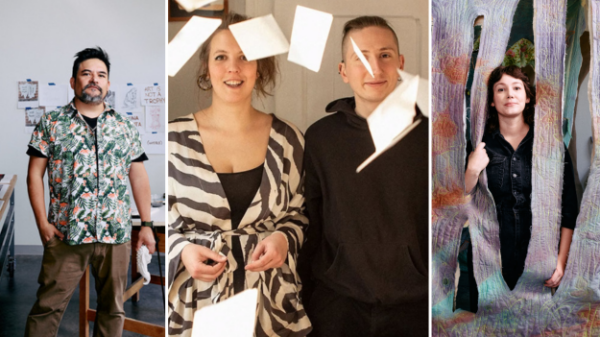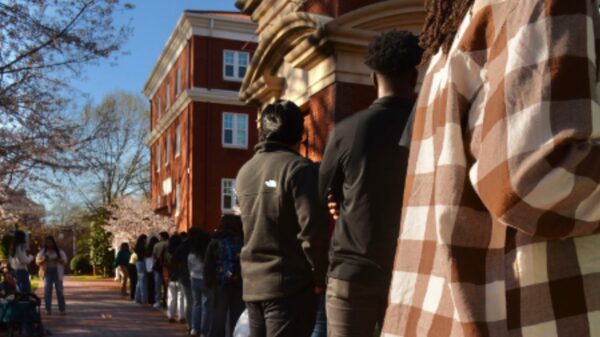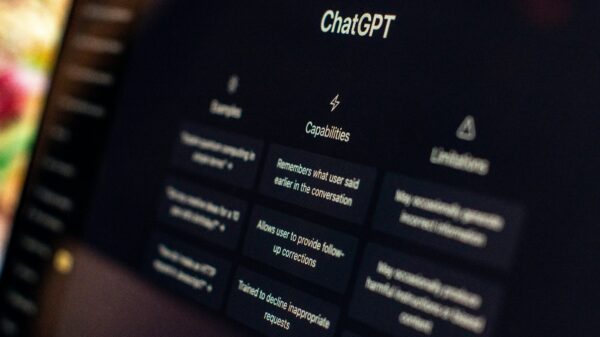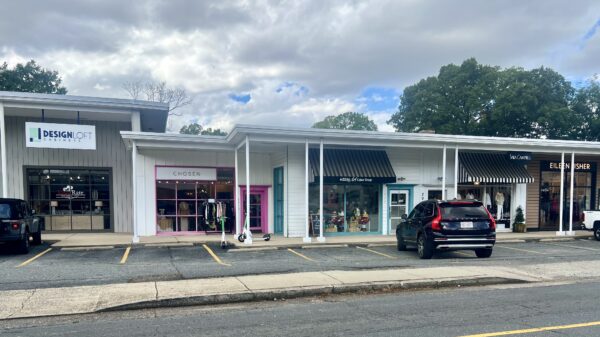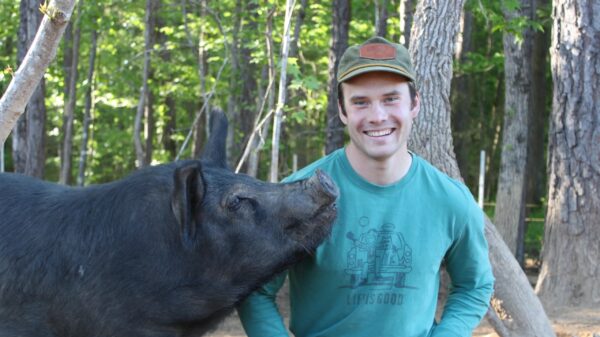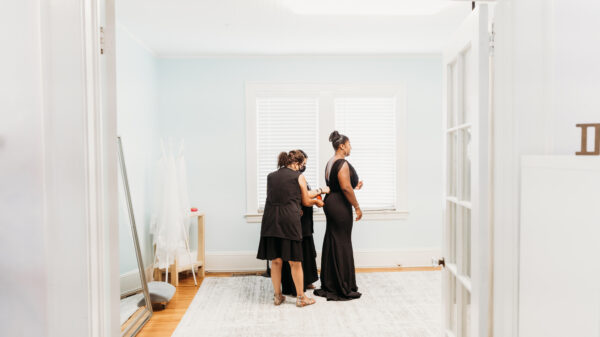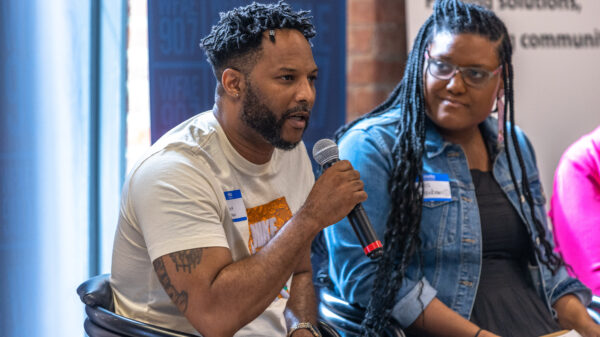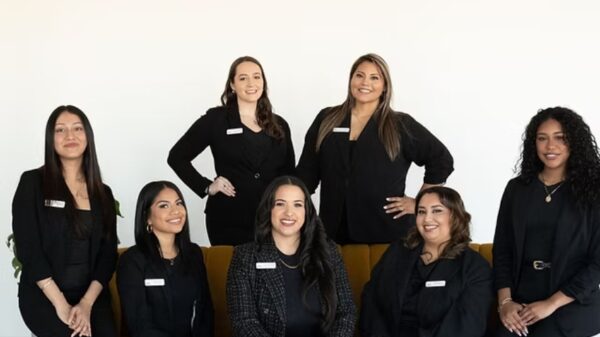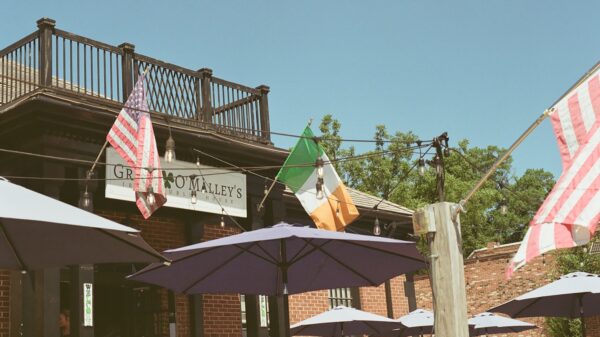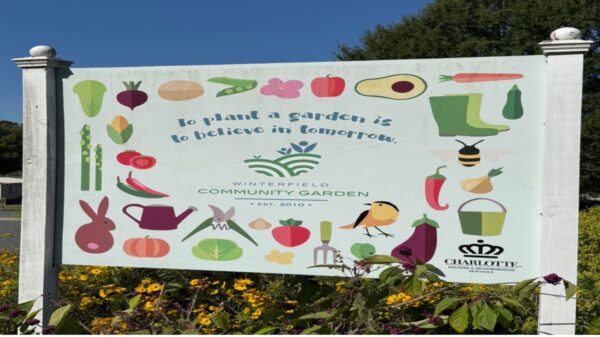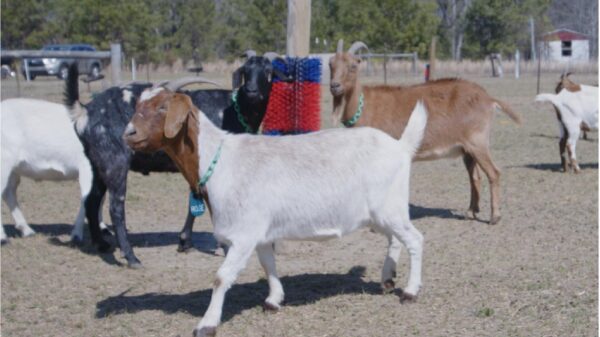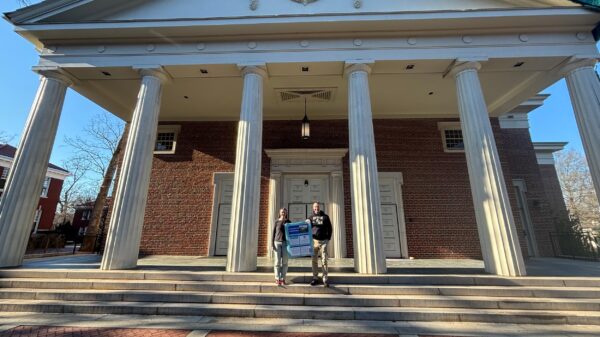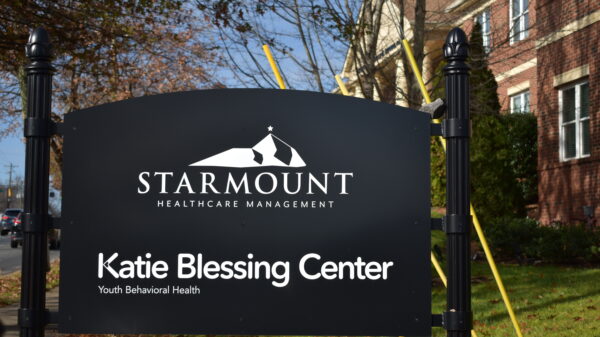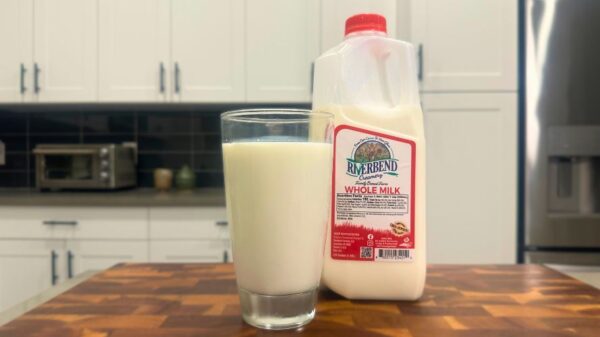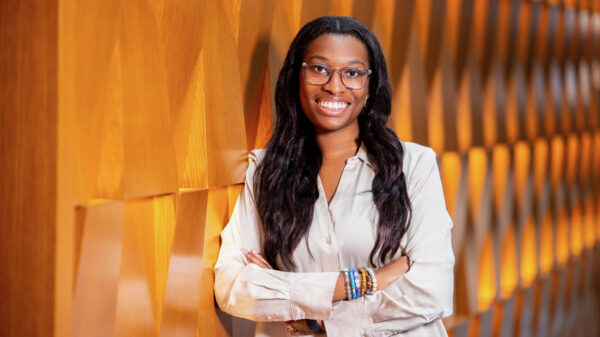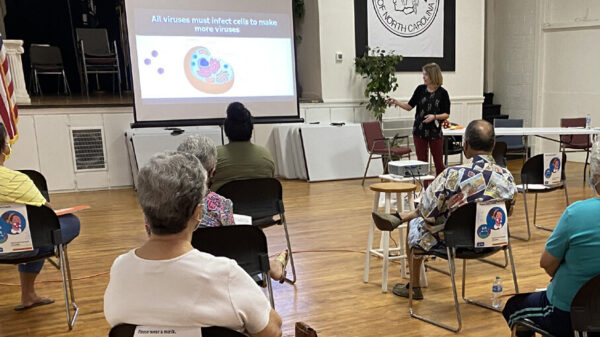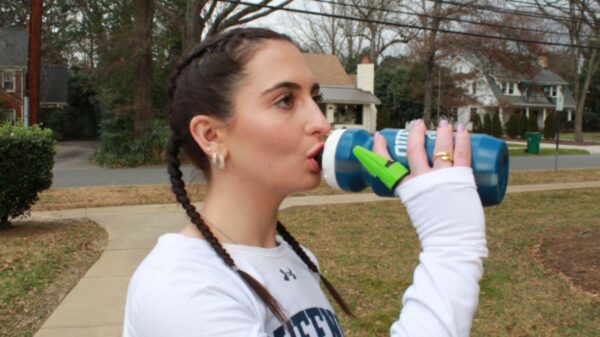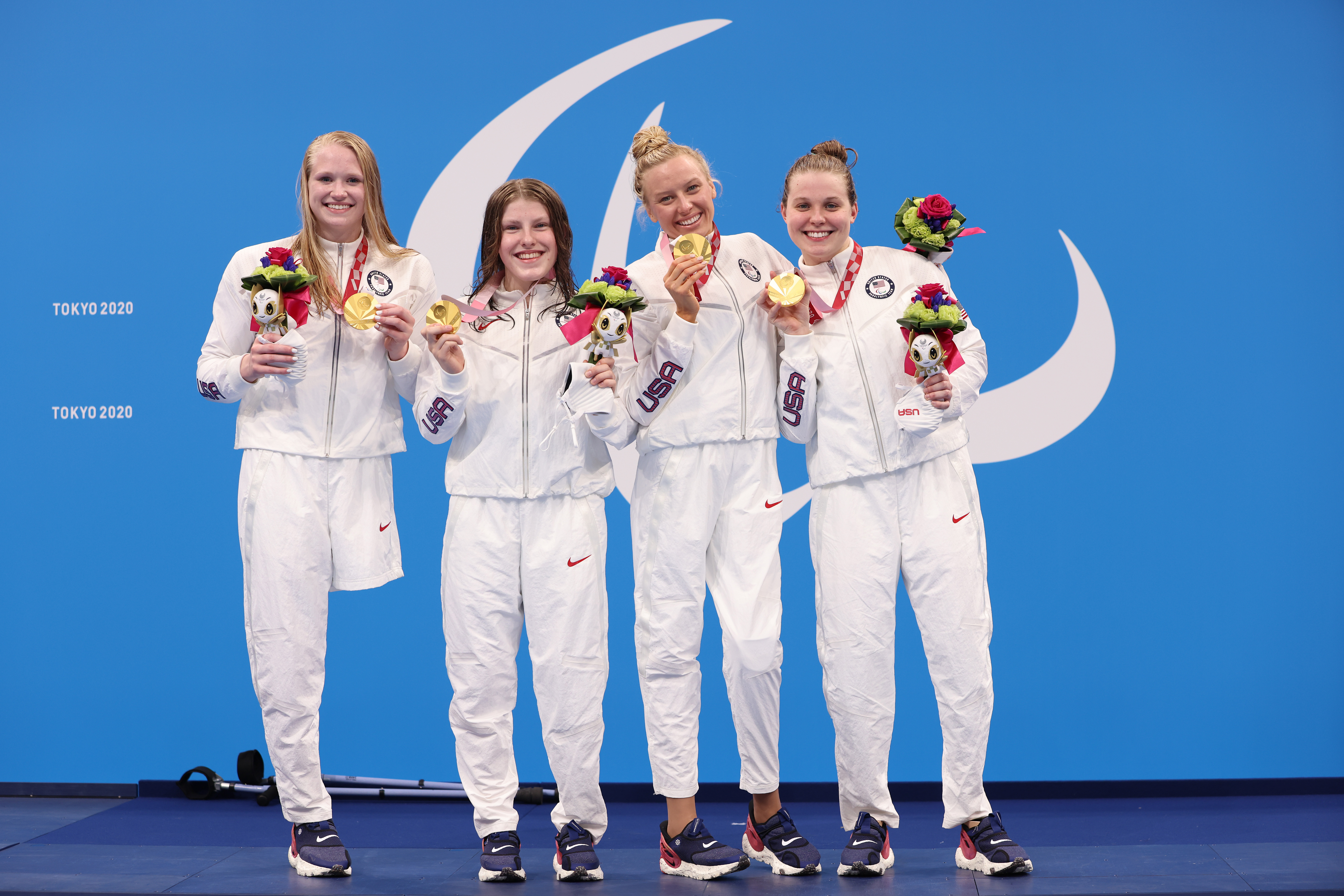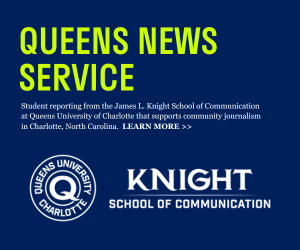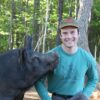On the final Monday of the Tokyo 2020 Paralympic Games, Hannah Aspden shared a moment of disbelief with her mother in a 2 a.m. phone call from across the world. Aspden had just set a new American record and landed her first career gold medal in the 100-meter women’s backstroke S9 competition at the Paralympics.
“I’m just looking at this medal and I can’t really believe this is mine,” she told her mother, Jennifer Aspden, who had watched the race from their home in Raleigh.

Photo from the Aspden family
Hannah’s mom ran on about four hours of sleep a day for the two weeks of the games, as she worked to keep up with Hannah and her races in Tokyo. Hannah – a rising senior at Queens University of Charlotte – eventually won her second gold medal in the women’s 400-meter medley relay.
Jennifer Aspden hasn’t seen her daughter compete internationally since Rio de Janeiro in 2016, because her family was saving for the trip to Tokyo. She admits it was odd to experience the Paralympics through the television. COVID protocols prevented family members from accompanying athletes to Tokyo Olympic and Paralympic events.
In Rio, “the volume of the crowd, the energy, I mean I feel like the building was shaking at times. You could feel it,” she said. “It’s very different to see how empty the stands are,” she said about Tokyo. “It’s sad to see that but you understand it.”
Mother and daughter used Facetime for hours each day during the games, because COVID-19 guidelines keep Hannah isolated in her room for the majority of her time in Tokyo. “Technology is a wonderful thing when you have to be across the world and you can’t really have people there,” Jennifer Aspden said. “Technology has really filled in that gap for her.”
At the end of the Paralympics, their phone calls lasted only a few minutes, to allow Hannah the proper rest for her events, which bunched up at the end of the event. Jennifer Aspden knows how important it is to step back and let Hannah create her own path.
“You’re driving this train,” she reminds her daughter. “You’re responsible for the destination, not me, not your coach, not your teammates. You’re driving this, so you make the decision.
“You work too hard as an athlete to be doing it for someone else,” Jennifer Aspden said. “They really need to be doing it for themselves.” She also believes athletes must have the freedom to walk away, even if it’s just for a break. “As a family, we have a philosophy that if she’s not having fun then she’s not going to be swimming well,” Aspden said. “’A happy swimmer is a fast swimmer,’ is kind of what we say.”
Beyond two gold medals, Hannah brought home another memento that she was looking forward to. Although trading pins with athletes from other countries proved to be more difficult this year due to precautions with social distancing, she was able to collect more pins to add to her credentials lanyard.
Jennifer Aspden stressed the importance of reminding young athletes that there is more to their identity than their sport. “Hannah is not a swimmer. She swims, that’s what she does, but that’s not all that she is,” she said. “Her value is not in that, her worth is not in that, and therefore it’s not determined by what she does in the pool.”
High-level athletes tend to shift their focus and attention to be more performance-driven as their career advances, but Jennifer Aspden believes there’s more to it than that. “You work all this time, all this effort you’re putting into it, it can’t only be about that number on the clock,” she said. “There has to be something else you’re getting out of it.”
For Hannah, it’s about representing her adaptive-sport community. “It’s about changing perceptions and the expectations or the parameters people set for another person,” Jennifer Aspden said. “I think that’s a big part of what motivates her is trying to be that voice.”
She reflects on the moment Hannah was born, when they first discovered her condition. She researched the internet for any information or advice possible. “If me as a mom back then could’ve done a Google search and found someone like you, you have no idea what that would’ve done for me,” she consistently tells Hannah. “You’re doing that for some mom out there. You may never know it, but you are doing that. You are showing the potential that life is going to be okay.”
Hannah is recuperating in Raleigh for about two weeks before heading back to Queens University for her senior year. She is catching up on schoolwork and visiting family that she hadn’t seen in weeks due to isolating before the Games.
Her swimming coach at Queens, Jeff Dugdale, agrees with Jennifer Aspden about the lessons that Hannah provides.
“I have run out of tissues,” Dugdale said. “I watch with joy and feel so blessed that her experience was captured via the media so that the world can see what diversity looks like and even more important what inclusion looks like. Her post-race interviews showed empathy to all participants and the countries they come from, knowing the struggles all endured. Mindset, not classification, is what level-sets all humans.”
-
Grace Wesoly of Greensboro, North Carolina, is a 2022 graduate of the James L. Knight School of Communication at Queens University of Charlotte. Grace was a Knight summer scholar with the news service in 2021, and also competed as an athlete on the Queens softball team.
View all posts

